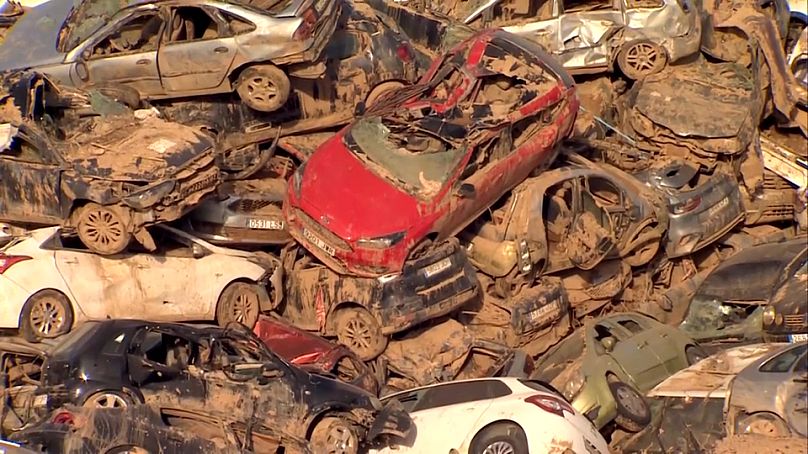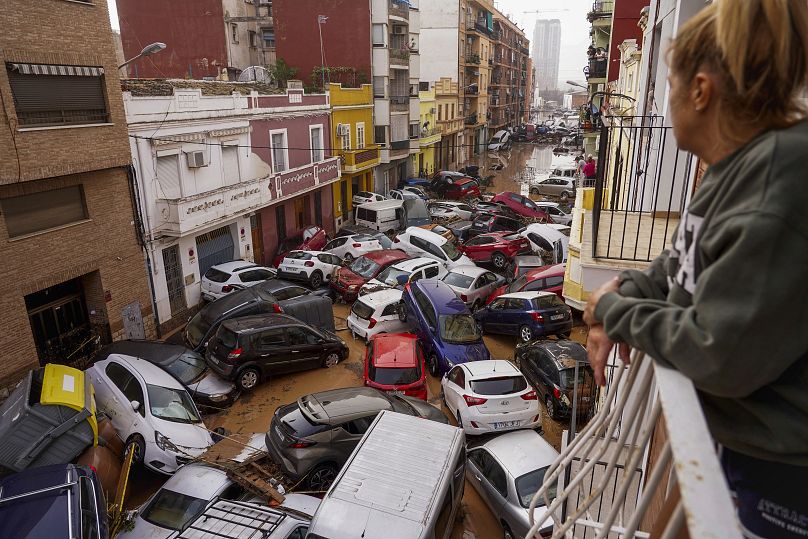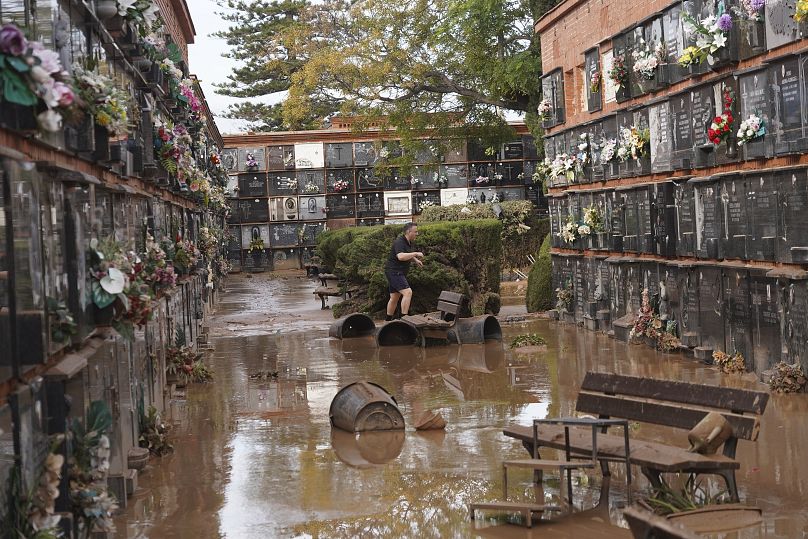The catastrophic flooding, which mostly affected eastern Spain, began on October 29 when torrential rain battered parts of Valencia, with some areas receiving a year’s worth of rain in just eight hours.
A massive car graveyard in Catarroja in Spain's eastern Valencia region provides a stark reminder of the scale of October’s devastating flooding.
There are many such makeshift graveyards across Valencia for wrecked cars to be stored, waiting to be taken away and scrapped.
In some parts of the region, sports fields were pressed into service to store the mud-caked vehicles to keep roads clear for emergency vehicles.
"80% of these cars can't be restored. But whether they are saved or not, we wanted to see it," said one man, curious to see wrecks.
But while many of these vehicles will never be roadworthy again, what's left of them still poses a risk.
"The danger is that a battery will burst and catch fire with the fuel that is still in the cars," said another man.
The catastrophic flooding, which mostly affected eastern Spain, began on October 29 when torrential rain battered parts of Valencia, with some areas receiving a year's worth of rain in just eight hours.
At least 224 people have been confirmed dead with seven still reported missing.
Over half of the people who died in Valencia were aged 70 or over, figures from a data centre set up by the police following the disaster showed.
The regional government's response to the disaster sparked widespread anger across the province, with tens of thousands of people staging a protest in mid-November, accusing regional authorities of sending out public alerts warning about the dangers of the flooding too slowly.
Some protesters also demanded the resignation of regional president Carlos Mazón, who they accused of refusing to take responsibility for the crisis after he initially pointed the finger at Spain’s socialist government headed by prime minister Pedro Sánchez.
After that protest, the region's vice-president, Susana Camarero, said no one would be stepping down as Spain clears up from its worst natural disaster in decades, saying to do so would be a betrayal of the victims.
"Given the magnitude of the catastrophe and the damages inflicted on towns and on people, given that magnitude and all the damages caused, we cannot abandon the victims," she said.
Spain's central government insists the disaster response fell entirely to Mazón and not Madrid as it had been graded a level two emergency and therefore the relief effort was the responsibility of regional authorities.
That wasn’t the first angry protest in the region. On 3 November, Spain's royals, Prime Minister Sánchez and a number of regional leaders had mud thrown at them by angry crowds when they visited the municipality of Paiporta.
The full extent of the damage in the region is unknown, but Spain's Consortium for Insurance Compensation, a public-private entity that pays insurance claims for extreme risks like floods, estimates that it will pay out at least €3.5 billion in compensation.














